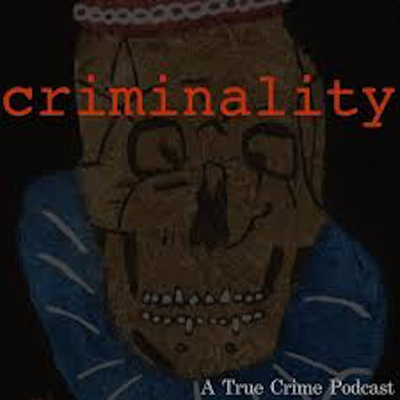

When the episode leaves us with a “to be continued,” Joshua has been summoned to court with the potential of being sentenced as an adult. The regular attacks against Joshua, according to a number of Koenig’s interviewees, were overlooked and even facilitated by the prison guards. That reputation of ratting made juvenile detention centers dangerous for Joshua, and exposes the holes in ODYS’s reforms: the remaining juvenile prisons have become even more unsafe. The peculiarity of Joshua’s situation is his cooperation with investigators, who consistently used him as an informant in cases involving members of Joshua’s former gang. In the first half of the finale, Koenig begins to dismantle the conventional knowledge that ODYS has become a more humane institution after an overhaul that redirected many young people towards programs other than prison.
#SERIAL PODCAST EPISODE 7 SERIES#
What leads her into the Ohio Department of Youth Services is the case of Joshua, charged with a series of crimes as a minor with the threat of an adult-sentencing extension for behavioral infractions. Serial’s third season concludes with a two-part story about Cleveland’s juvenile justice system, the establishment Koenig tells us she originally thought would be outside the scope of her reporting.

“Reflect on the far-reaching pain of prosecution.” And, at the very least, “accept that something’s gone wrong: let’s make that the premise.” - S.L. Don’t be “insensibly tempted, as Charles Dickens wrote,” to make careless mistakes. “Get out of the punishment business,” Koenig suggests. To end the season, Koenig offers some recommendations for what is obviously a very convoluted and often broken criminal justice system-at least in Cuyahoga County, Ohio. These are “the people that understand me the most.” They are the only people he knows. She explains that she “understood he was just trying give other people what he himself needed…that he was forgivable, redeemable.” But it’s more than that. Want to receive our latest podcast reviews and episode recommendations via email? Sign up here for our weekly newsletter. They need to know, Joshua recognizes, that they haven’t been forgotten they need to “keep their hopes up” and not “feel like shit.” Everybody in this world made choices before-it’s whether they got caught or not.” He’s talking to these people because they “need a good friend,” someone who cares. “Look,” Joshua explains, “like, to me, no matter what the situation is, what you did, what your past is, I’m not here to judge nobody. She confronts him, urges him to stay on the right path, preparing for life after release. And he shows this hope near the end of the episode, when Koenig discovers that he’s been in contact with friends in other prisons. Even when no one else-those controlling his fate-can see hope, he can. While in prison Joshua has earned a GED, finally, after struggling with the language arts section. In a fascinating turn, there is a glimmer of redemption here, at least in character. This is the only way the courts, law enforcement, and the State of Ohio can “deal” with this troubled youth: in the convoluted, often unproductive, and always lengthy way that pervades every case this season documents. For a crime he committed as an adolescent, he will spend nearly a decade in prison. And yet, for Joshua, there is no other option. The government, Koenig concludes, has not protected him from “hits,” attacks, and ridicule. She is with him-at least via telephone-as he struggles in juvenile detention, where the deal he struck previously with the FBI to “rat” out the Heartless Felons gang has not led to the protection the bureau had promised. Sarah Koenig follows Joshua throughout this process. He has now spent years as part of the criminal justice system, and in that time he’s gathered enough complaints, reports, and incidents for the authorities to consider him “beyond reform.” Through adolescence and young adulthood, this is the only life he’s known, one predominated by crime, both on the streets and in prison. Season 3’s final episode follows Joshua as he leaves juvenile detention and enters into county jail. Instead, after its semi-maligned second season, the podcast is re-centering its ability to tell a compelling one-hour story.Įpisode 9: Some Time When Everything Has Changed The show has explicitly ditched its central mystery structure.

The most famous podcast in the world has returned for its third season, this time inside the city of Cleveland’s sprawling courthouse.


 0 kommentar(er)
0 kommentar(er)
